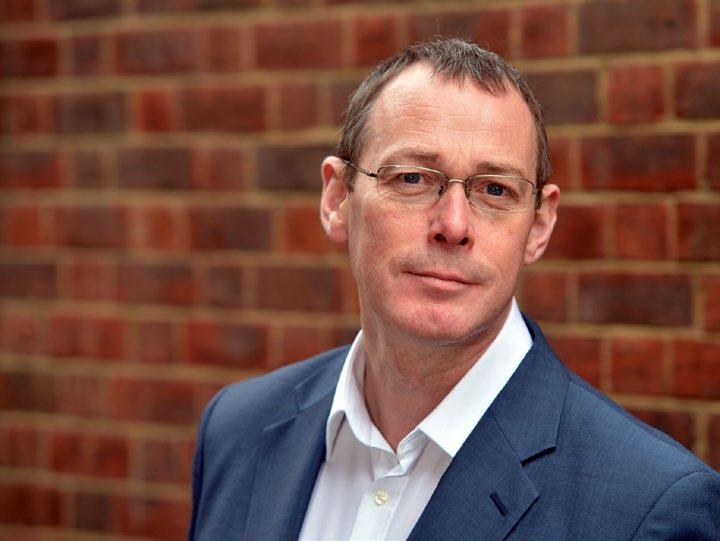Leader of the Pact Pact
John McVay
W
hen, 20 years ago, John McVay became CEO of the producers’ lobby group Pact, his first outing to the world of London TV types did not go according to plan. Flying down from his native Edinburgh and travelling to Soho via the Heathrow Express, the train caught fire and he was stuck on the line outside Paddington for two hours. By the time he arrived at the farewell party for his predecessor, he was conspicuously sober while his new colleagues were too merry to give him their proper attention. Two decades later, McVay is widely regarded as one of the most influential media people in the capital. He was made an OBE in 2019 for his services to the creative industries, and famously wore a kilt to his presentation at Buckingham Palace. This year, he has been recognised for his work in persuading the Treasury to set up a £500m insurance fund for productions and for helping to create
12
Steve Clarke profiles Pact CEO John McVay and discovers how he helped secure Treasury backing for last summer’s Production Restart Covid-secure studios and sets. At a stroke, this enabled the UK television sector to restart filming after the pandemic had shuttered much of the industry. In March, Pact received a Special Award at the RTS Programme Awards while the Broadcasting Press Guild presented him with the Harvey Lee Award, a prize for outstanding contribution to broadcasting. McVay’s achievements over two decades, the Production Restart initiative aside, have helped pave the way for what is unquestionably the most
dynamic independent TV production sector in the world, worth around £3.3bn annually to the British economy. That McVay has accomplished all this without many of the privileges that most of his peers grew up with is all the more remarkable. What, then, is the knack to successful lobbying? “Evidence and argument and understanding the situation the politicians are in,” he says matter-of-factly during a Zoom call from his north London home before taking another pull on his e-cigarette. “People assume I’ve done a law degree. I have no training. I’ve picked up everything. I have a magpie mind. I assimilate things very quickly and retain a lot of information and detail. This is very helpful when you are talking to politicians about detail.” What he doesn’t say is that he clearly has that rare ability of being able to get on with people from all kinds of backgrounds and to adapt to the ever- evolving media agenda. Typically, he doesn’t miss a beat when I suggest that he has a chip on his shoulder. “Of course, I have. If I












